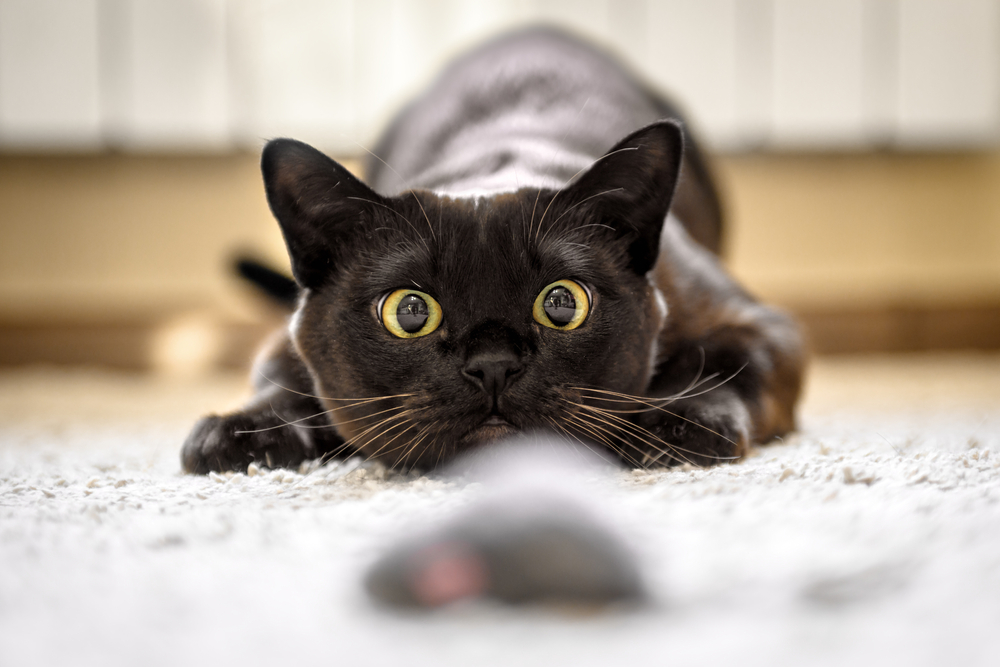One of the unfortunate side effects of being a cat owner is finding the occasional small mammal presented to you as an offering. But if that’s where you normally see the rodents, do cats eat mice? The truth is that our felines may catch an animal and play with it, bring it to you as a gift, or eat it. And we aren’t just talking about mice here, but also rats, birds, or other mammals, like voles. So why do they have this instinct, and should you allow it to happen? There’s a bit more to this ancient drive — read on to get the info.
Why do cats hunt mice?

We domesticated cats about 10,000 years ago, and they probably served as mousers then, too. Even if you keep your kitty indoors, their hunting instinct has been preserved in their DNA this whole time. Without rodents, birds, and small reptiles to chase after, they instead turn to toys. That’s why you’ll see your pet swipe at and chase their fake mouse, and we highly encourage this activity as it stimulates them physically and mentally.
If your cat happens to stumble upon a real, live animal, they may wind up playing with it rather than killing it. This may seem barbaric to us, but it makes sense to your pet. Really, they’re practicing hunting skills. At the end, your cat might leave this catch as a donation to you to prove what a good hunter they are (and perhaps comment on your lack of skills, which they think you need to work on).
Should cats eat mice?

If you have a domestic pet and they get three square meals a day, you probably won’t see them eating mice frequently. However, some outdoor fur babies will nibble on vermin and certainly feral ones as well. While, of course, cats have eaten mice for thousands of years, it does pose some risks that modern owners probably want to avoid. Specifically, that mouse snack can pass on diseases, such as leptospirosis, or give your kitty a parasite, like roundworm.
Additionally, many rats and mice found in urban areas have been exposed to poison. When a cat eats a rat that has consumed bait, they digest it, too. Some poisons are lethal, even to a larger animal. We recommend trying to keep your beastie from swallowing any prey (and getting them to stick to toys is certainly the best option).
A cat chasing a mouse seems like the most natural thing in the world, but rarely will a domestic animal with a full belly actually eat it afterward. And that’s a good thing! For the most part, you’ll want to discourage your kitty from swallowing rodents that may carry diseases. If that means you wind up with a surprise on your pillow, you’ll just have to mark that down as one of the joys of pet parenting.




